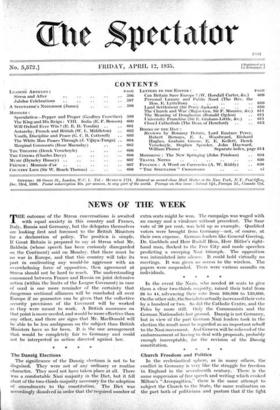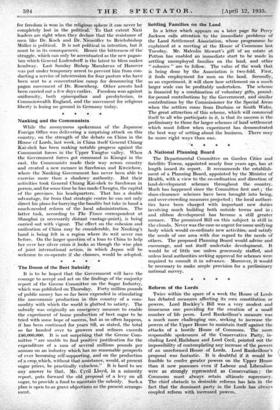Church Freedom and Politics In the ecclesiastical sphere, as in
many others, the conflict in Germany is very like the struggle for freedom in England in the seventeenth century. There is the same suppression of free speech and writing which evoked Milton's " Areopagitica," there is the same attempt to subject the Church to the State, the same realization on the part both of politicians and pastors that if the fight for freedom is won in the religious sphere it can never be completely lost in the political. To that extent Nazi leaders are right when they declare that the resistance of men like Dr. Koch and Dr. Nienitiller to Reichsbishop Muller is political. It is not political in intention, but it must be in its COnsequencei. Hen-6e the bitterness of the struggle, which can only be accentuated as the new pagan- isin which General Ludendorff is the latest to bless makes headway. Last Sunday Bishop Marahrens of HanoVer was put under temporary arrest to prevent him from con- dUcting a service of intercession for four pastors who have beeti sent to a concentration camp for denouncing the pagan movement of Dr. Rosenberg. Other arrests had been carried out a few days earlier. Freedom won against uniformity, both episcopalian and " presbyterian, in CommonWealth England, and the movement' for religious liberty is losing no ground in Germany today.



















































